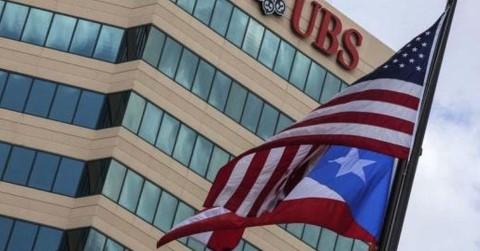Change in Puerto Rico
Reality has created a dynamic that is entirely new in quality, but which even certain anti-colonialists have yet to notice.
- Opinión

There are times when it looks as if nothing is happening and then suddenly new events are unleashed; but while the in-depth situation makes a turn-around, even the best analysts may take time to notice it. And when their appreciations are absorbed by routine, even the left fails to escape from this trend. This is the case of what is happening with Puerto Rico now, where reality has created a dynamic that is entirely new in quality, but which even certain anti-colonialists have yet to notice.
This is reflected in the Declaration of the recent 22nd Meeting of such a worthy organization as the Forum of São Paulo, celebrated in San Salvador at the end of June. A usual, they repeated that "we support the heroic struggle of the Puerto Rican people for its independence and the just claim of Argentina for their sovereignty over the Malvinas Islands". In spite of the good faith of this phrase, its scantiness makes for deficiencies. The most simple is that between the immobility of the Malvinas and the present situation of Puerto Rico there is no similarity beyond the geographical accident that both are islands. If it is related to being colonial regimes, then Aruba, Martinique and other possessions in the Caribbean should have been included.
The second error is that in the case of the Malvinas there is a question of territorial integrity, but not of self-determination of peoples. Great Britain took this land from Argentina and replaced its small population with some colonists brought from England. If their descendants were to vote on sovereignty, their choice would be for London. Puerto Rico, on the contrary, is a historic nation, where some four million people defend their own culture, which is of a purely Hispanic-American and Caribbean strain. The question here is to recover the conditions necessary in order for this people to freely decide their own destiny. This is radically distinct from the case of the Malvinas. So to put them side-by-side –while omitting the other Antillean colonies – creates more confusion than solidarity.
But the main problem is elsewhere. It is the omission of that fact that ten years of recession and an unpayable debt has made Puerto Rico a headache for the US government as well. This has created a crisis within the colonial political system and its parties. In face of Puerto Rican non-conformity and complaints, and the pressure of Wall Street creditors, the US authorities arrived at two definitive decisions that have annulled the regime of the so-called Associated Free State (AFS).
The first is that the US Supreme Court decreed that the island has no sovereignty, and that this pertains exclusively to the Congress in Washington. The second is that the Congress then agreed to create a Fiscal Control Board whose members will be named by the White House, which will not only manage the fiscal affairs and budget of Puerto Rico, but will reorganize the administration of the country over and above the government elected by the Puerto Ricans, in order to ensure that the vultures of Wall Street collect the enormous debt, at the expense of the people who live on the island. This converts the governor of Puerto Rico into a simple ceremonial rag doll.
The two parties that defend the Colonial system -- one annexationist and the other autonomist -- whose inefficiency and corruption as governors of the country accumulated this debt, have lost their capacity to neutralize the population politically. In order to defend their worn-out privileges they direct their complaints and claims against the new Board, but the greater part of the population already sees clearly that the cause of their social and economic drama, their unemployment and poverty, and of the discredit of the political regime, is the colonial system. The same one that, faced with the deterioration of the panorama, calls for creating this new instrument of authoritarian domination.
This in turn has brought the pro-independence party and organizations not only to their moment of greatest political growth, but also to that of the greatest progress in the construction of their unity. This means that Latin American solidarity with the independence of Puerto Rico -- and the support for its actors and struggles – needs to go beyond the usual phrases and calls for new analyses and initiatives in tune with the present demands and possibilities of the situation.
San Juan, July 12, 2015.
(Translated by Jordan Bishop, for ALAI)
Del mismo autor
- Cuba: el pueblo retoma la iniciativa 11/11/2021
- La crisis latente en la frontera colombo-panameña 26/05/2021
- La post pandemia: disyuntivas y confrontaciones 21/01/2021
- Puerto Rico: el independentismo en su despegue electoral 10/11/2020
- Crisis del trabajo y formación del sujeto político progresista 17/09/2020
- De la crisis del trabajo al camino que viene 10/08/2020
- Qué resurgirá tras la pandemia 25/06/2020
- EEUU: Cuando un acto brutal ultraja a todos 12/06/2020
- La pandemia acelera una crisis que ya existía 28/05/2020
- ¿De quién es esta crisis? 11/05/2020
